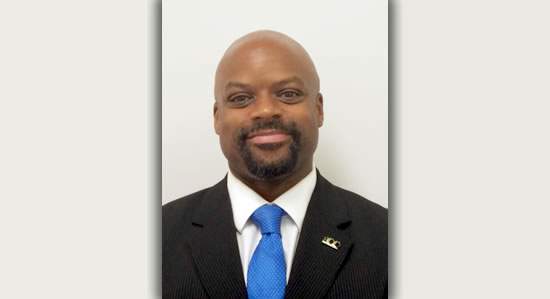James Logan Helps to Rebuild Lives
By Lydia Liebman & Dr. Pola Rosen
Transcribed By Lydia Liebman

James Logan
James Logan, son of former CSA President Ernest Logan, works to change lives. Much like his father, James has made it his life’s work to serve the underserved and better lives. Since 2012, James has worked for the City of New Orleans as the Reentry Services Program Manager. In his role, he works on providing opportunities and connections to those that are exiting incarcerations. Education Update spoke with James Logan in an exclusive interview about his work.
Education Update (EU): What is it that you do? Do you provide job training?
James Logan (JL): The city doesn’t provide direct services but what we do is work with large providers around the city; several of which are job training programs. We have education training and we also work with providers. If there are any job training programs available we make sure that we can get people into those.
EU: How long have you been in this line of work? What drew you to it?
JL: I have been working for the city since 2012 but I have been involved in this work for a while. Before this I was a Community Development attorney and many of the clients I had were formerly incarcerated people who wanted to start non-profits to help others like them. I’ve been working within this line of work for over 15 years. Part of what drew me to it is that I’ve always looked at work as a mission. I’ve been attracted to working for those that do not have the voice that they should have. I have always liked to do work where helping one person can impact the community as a whole.
EU: Can you give an example of some of the jobs that some of the formerly incarcerated are going into?
JL: One of the things that I did when I was here was that we went through the process of eliminating the felony questions from personal history forms for our hires and created a policy here where a background check is not done until they are a conditional hire so that there is a name and a face and a personality to go along with their interview. Their criminal history is taken into account but only if it’s directly related to the job. The example is if they were a bank robber they couldn’t work in finance but if they want to work for parks that’s fine. We hire a good amount of formerly incarcerated people in the city. We also work on training people in hospitality. It’s a big entry point. We also work with community college. We look at what jobs are available in the city and we try to train for these jobs.
EU: There is a belief that incarceration does not necessarily rehabilitate people. What do you think about it?
JL: We totally agree. We say that you can’t incarcerate your way around the problem. Rehabilitation is more a mind state change that gives them opportunities they may not have had in the first place.
EU: What is the most difficult part of your job?
JL: The most difficult part of this job is the lack of resources. Louisiana incarcerates a lot of people—the most in the country—and there are just not enough resources to serve everyone getting out. Not everybody fits for a certain training program. Not everyone has the same needs. Trying to specific needs with a lack of resources can be challenging.
EU: In your opinion, how can we change the incarceration statistics?
JL: I am not one of those people who think there shouldn’t be prison. I think there are certain crimes where incarceration is necessary for public safety. One of the things that can be done focuses around diversion and alternatives to sentencing. If you know there’s somebody who, other than a bad choice they made once in their life, is redeemable and is someone who has a future, we should try to make every opportunity to provide opportunities for them to improve their lives. Getting a good education and having caring teachers and curriculums that actually are created to benefit and educate is key. #
